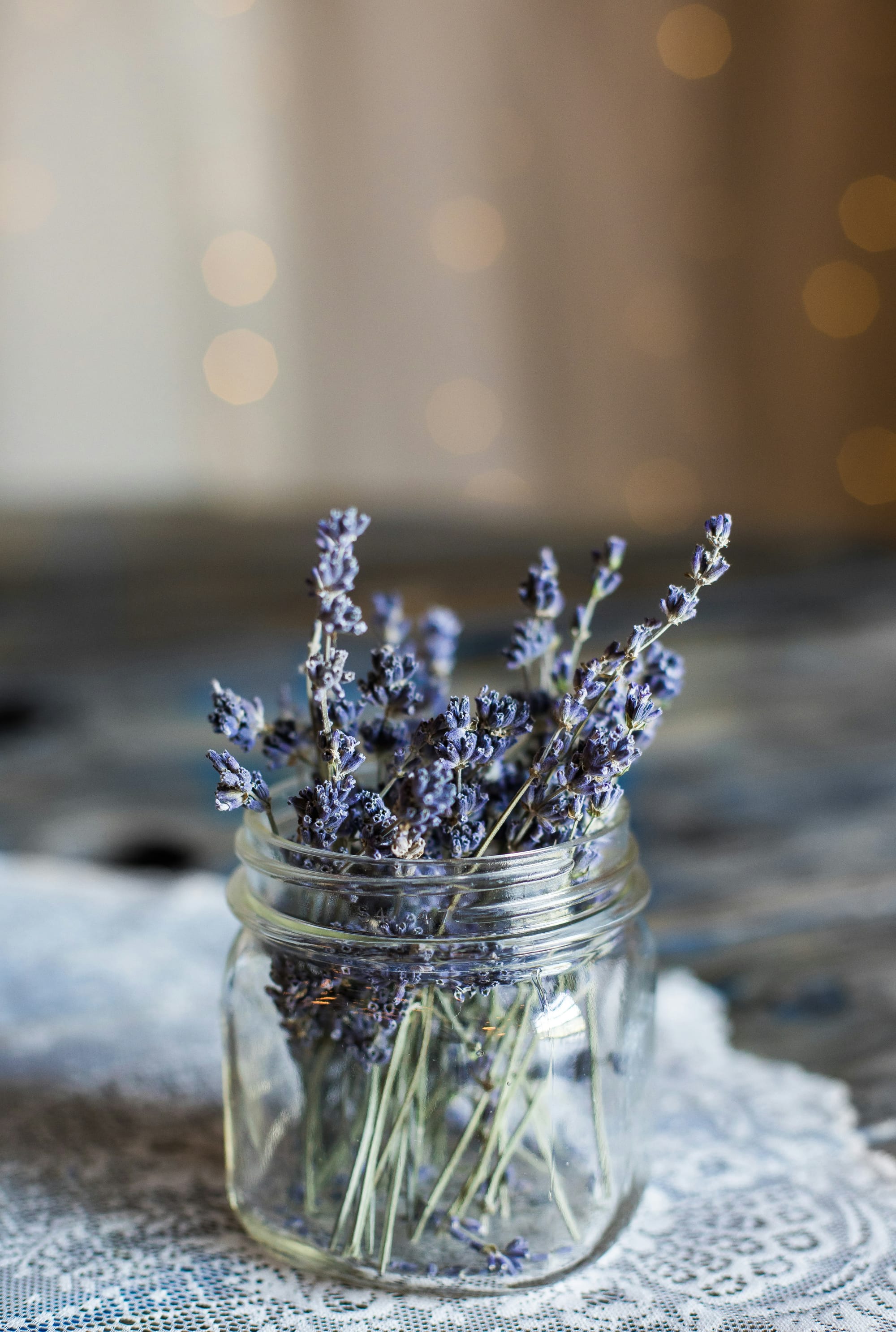
A Holistic Approach to Managing Stress
As the demands of modern life persist and pressures mount, many of us feel stress pulling us in all directions. While a certain amount of stress is a natural part of life, chronic stress can take a toll on our physical and mental well-being. Our bodies have not yet caught up with the rapid evolution of contemporary stressors and we are left to deal with the effects of chronically elevated cortisol. This is why it’s increasingly important to find ways to manage our stress holistically and make a significant difference in our daily lives.
Make Self-Care a Priority

Prioritising self-care is a radical act in our fast-paced and increasingly demanding society. Give yourself permission to slow down, breathe deeper and resist the pressures of constant business. The key to managing stress holistically lies in recognising the interconnectedness of our systems. Stress isn't just something that happens in the mind; it can show up as tension in the body, disrupted sleep, digestive issues, a weakened immune system as well as many other health issues.
Practices to Ease Stress

There are several ways to support our bodies in defence against stress:
Sleep: Cortisol levels should follow a natural circadian rhythm, typically peaking in the morning and tapering off throughout the day, when functioning normally. Disruptions to this rhythm, such as irregular sleep patterns or shift work, can lead to dysregulated cortisol levels and contribute to increased stress. Aligning daily routines with natural circadian rhythms—such as maintaining consistent sleep schedules and getting morning sunlight—can help regulate cortisol production and support a more balanced stress response.
Keep Moving to Banish Stress

Movement and Bodywork: Regular physical activity is one of the most effective ways to reduce stress. Yoga and expressive dance are especially beneficial as they combine movement with mindfulness and deep breathing. Techniques like massage, acupuncture and reflexology work by releasing physical tension and encouraging relaxation. These practices help to release tension, improve circulation and provide a sense of calm.
How to Strengthen Your Vagal Nerve
The Vagus Nerve: This long nerve runs from the brainstem down through the chest and abdomen, influencing key functions like heart rate, digestion and the immune response. Strengthening our vagal tone is essential for activating the parasympathetic nervous system, which promotes relaxation and recovery. Practices such as deep breathing, meditation, cold exposure and even humming can stimulate the vagus nerve, helping to calm the body, regulate emotions and restore balance amidst stress.
The Power of Meditation

Good Mental and Emotional Practices: A few minutes a day of mindful meditation practices can make a difference in our stress response, allowing us to focus on the present moment and break the cycle of stress-inducing thoughts. Writing down our thoughts can also help us process emotions and find clarity in challenging situations. Replacing negative self-talk with positive affirmations and gratitude can shift our mindset from one of stress to one of empowerment.
Nature Connection: Spending time in nature is a powerful way to reduce stress. Whether it's a walk in the woods, gardening, or simply sitting in a park, nature has a calming effect on the mind and body.
Creative Expression: Engaging in creative activities like painting, music, or crafting can provide a much-needed outlet for stress. Creativity allows us to express our emotions and connect with our inner selves in a fulfilling way.
Medicinal Herbs: Nature’s Stress Relievers

Herbs work best in combination with these other tips, but are a great way to soothe and restore the nervous system if you don’t have time to meditate for example. Incorporating taking 10 deep breaths after taking the herbs is a good practice to add to your routine.
Adaptogens for Healthy Energy
Adaptogens: Helping our body adapt to stress, this well-researched class of herbs can balance cortisol levels and promote healthy energy levels. Each individual is different and can have diverse needs when it comes to adaptogens, speak to a herbalist to find out which ones are most suitable for your constitution.
Nervines: Nourishing and supporting your nervous system is vital when dealing with stress. Nervine tonics include milky oats, skullcap and vervain.
Grounding bitters: Although bitter herbs are associated with digestion, a strong bitter can act as a way of grounding, allowing us to snap back into our bodies through taste stimulation and activate the parasympathetic nervous system. Roots are particularly good at this, for example dandelion, as they are associated with grounding and stability.
Sedatives: Sometimes sleepy herbs can be a useful addition to our blends, especially where our nervous system is tense and working overtime. Herbs such as lavender and passionflower promote feelings of relaxation without actually sedating.
Feeding the Body and Mind

What we eat can have a profound effect on how we manage stress. Nourishing foods support the body and brain, making us more resilient to the effects of stress.
Omega-3 Fatty Acids: Found in fatty fish, flaxseeds and walnuts, omega-3s help to reduce inflammation and support brain health, which can improve mood and stress responses.
Magnesium-Rich Foods: Magnesium is known as the “relaxation mineral.” Foods like dark leafy greens, nuts, seeds and whole grains can help relax muscles and calm the nervous system. When supplementing, opt for glycinate or threonate.
Probiotics and Gut Health: The gut-brain axis, a bidirectional communication system between the gut and the brain, plays a role in regulating cortisol production. An imbalance in gut bacteria can exacerbate stress responses and lead to dysregulation of cortisol levels. Incorporating probiotic-rich foods like yoghurt, kefir and fermented vegetables can support digestion and reduce stress-related digestive issues.
Hydration: Staying well-hydrated is often overlooked, but dehydration can exacerbate stress. Herbal teas like chamomile or lemon balm not only hydrate but also provide calming benefits.
Cortisol’s Dual Role
Cortisol is often labelled as a villain in stress management discussions. In short bursts, cortisol is vital for energy and alertness, can enhance memory and even boost our immune defences. Interestingly, cortisol has been linked to enhanced creativity and problem-solving under certain conditions. Moderate levels of cortisol can stimulate brain regions involved in creative thinking and innovation. It’s the sustained elevation due to chronic stress which is where its negative effects come in. Understanding this can shift our focus from simply lowering cortisol to achieving a healthy equilibrium.
Risk Factors of Unsustainable Stress
Burnout is often the result of prolonged exposure to stressors, where the demands consistently outweigh the resources available to cope. The body’s stress response, designed for short bursts of action, becomes perpetually activated, leading to a cascade of negative effects on health and well-being. Over time, if left unaddressed, this can lead to feelings of deep fatigue, mental fog, weakened immunity, mood swings, and difficulty coping with even minor stressors and can be a result of adrenal exhaustion.
The first step in healing from burnout and adrenal exhaustion is giving your body the rest it desperately needs. This may mean taking time off work if possible, delegating responsibilities, or simply allowing yourself to slow down. Prioritising sleep, as well as incorporating restorative practices like yoga nidra or guided relaxation, can help rebuild your energy reserves. Nourish your adrenal glands with foods rich in vitamin C and B vitamins. Magnesium is particularly important, as it is depleted during times of stress. Adaptogenic herbs will be useful here, but also adrenal-specific herbs like liquorice or blackcurrant. Most importantly, prevention is better than cure, learn your body’s signals so you can catch the early signs of burnout before it escalates. Setting healthy boundaries, saying “no” more often and taking regular breaks can help. If you feel a reduction in energy levels, unusual negative thought cycles and physical symptoms, it may be a sign of burn out.
The Pressures of Modern Life

In our fast-paced, achievement-oriented society, stress often stems from systemic pressures that push us to constantly strive for more—whether that be success, wealth, or productivity. The drive to keep up with the demands of work and life can feel relentless and often, the structures of society contribute to a sense of perpetual urgency. It's no wonder that many of us struggle with feelings of burnout or find ourselves caught in cycles of stress that feel unsustainable.
Community and Positive Social Interactions
Moreover, the broader context of our world can weigh heavily on us, even if we’re not always conscious of it. The suffering of marginalised communities and tragic injustices happening globally may not always be in the forefront of our minds, but they can subtly and powerfully influence our emotional and psychological well-being. This collective stress can amplify our personal experiences, making it even more important to find ways to reconnect with our sense of peace and resilience.
Just as we are affected by the stresses of our communities, we can also rely on them to nourish us when we need and to hold space for our emotions. If you have the capacity to do so, volunteering or organising meet ups with friends can decrease feelings of loneliness and stress. Positive social interactions and a strong support network can help buffer the body's stress response, leading to more balanced cortisol levels. Investing in meaningful relationships and fostering a sense of community can be as crucial for managing stress as traditional self-care practices. By nurturing our social connections, we not only enhance our emotional well-being but also support our body's physiological resilience against stress.

If you are struggling with stress and looking for a truly holistic solution suited to your specific constitution, contact me for a comprehensive consultation looking at all aspects of your health where we can identify the root cause and reduce symptoms: esme@medifolia.com
Copyright Esme Greenway/ The Luminaries Magazine, September 2024. All Rights Reserved. No copying in any format whatsoever.






